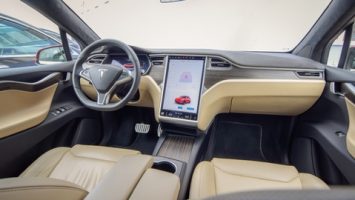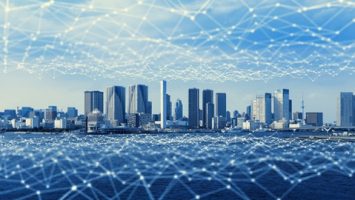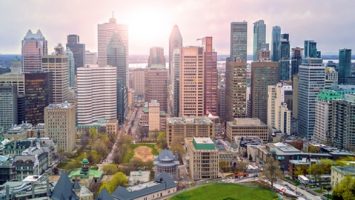
Beautiful beaches, quality cigars, pirate heritage celebrations, and Busch Gardens aren’t all you’ll find in Tampa! You’ll also find city leadership focused on smart infrastructure improvements and sustainability. We spoke with Vik Bihde, Manager of Smart Mobility for the City of Tampa Transportation and Stormwater Services about their smart city vision.
Q: We all define ‘smart’ a little bit differently. How do you define it, as it relates to your work in Tampa?
A: We view ‘smart’ in the context of the services we provide as a city. In that context, ‘smart’ is the ability to deliver better services, a more transparent government and resilient infrastructure by leveraging advancements in technology, forging strategic partnerships and fostering a ‘city-as-a-lab’ approach.
Q: Tell us about a project you’ve worked on in Tampa of which you are especially proud and how it relates to Tampa becoming a smarter city.
A: A few come to mind, but here’s one. We’ve been working on a smart mobility and public safety pilot project that epitomizes the ‘smart city’ we aspire to become. Our smart mobility team, police department and fire department have partnered with an Israeli tech startup (Waycare) and Florida department of transportation to deploy an AI/machine learning platform that leverages data from both public and private sources to detect traffic incidents, communicate incident details rapidly using social media tools and enhance public safety operations. Public data ingested by the platform includes traffic sensors, video cameras, historical crash data, GPS data from vehicle fleets, etc. Private data includes Waze feeds, telematics data from private fleets, Ticketmaster, weather feeds, etc. As the algorithm learns the network, it will be able to make macro-predictions about traffic incidents and their impact to the transportation system. This data and the contextual information it generates provides a circular value proposition to all participants; the city is able to detect, predict and respond to traffic incidents faster; the private partners get key insights from the contextual information gathered by the platform to their respective businesses; and the community/customers are the ultimate winners and benefit from better public and private services.
Q: What critical infrastructure – whether digital, hardware, or people – do you think every city needs to progress toward a smarter future? Why?
A: Smart cities will need infrastructure that mimics biological processes. In terms of hardware/digital infrastructure that means cities will need all kinds of sensors to serve as the eyes, ears, etc.; a robust brain in the form of an analytics/computing platform to create useful insights from the sensor data; and a nervous system in the form of a fast citywide communications network to gather sensor data, deliver it to the ‘brain’ and communicate the insights to the community at large, city staff and key partners on demand.
Q: What is your biggest dream for Tampa?
A: In Florida we are particularly cognizant of the need to deploy sustainable, resilient infrastructure in the context of climate change, severe weather events and sea level rise. After Hurricane Irma last year, our biggest take-away was that we needed to figure out how to continue to provide key services after the storm, particularly with power outages. That is a critical need to ensure that our community gets back on its feet and economic activity resumes as soon as possible. With that in mind, my biggest dream for Tampa is to have all our critical systems including water, wastewater, traffic signals, storm shelters, etc. run on renewable energy sources like solar. This has become more feasible with recent innovations in roadway and sidewalk mounted solar technology. Our roadways and sidewalks can become key resources to foster renewable energy.
Q: What do you hope results from Smart Cities Connect Conference and Expo this fall in Tampa?
A: I hope that the summit introduces new ideas and models for our community to learn from. This will also be an opportunity for Tampa to share what we’re doing in the areas of connected and automated vehicles (CAV), the Water Street development, smart mobility, technologies for vulnerable communities, smart street lights, our partnership with the University of South Florida and many other efforts.
Learn more at Smart Cities Connect Conference & Expo this October in Tampa!


